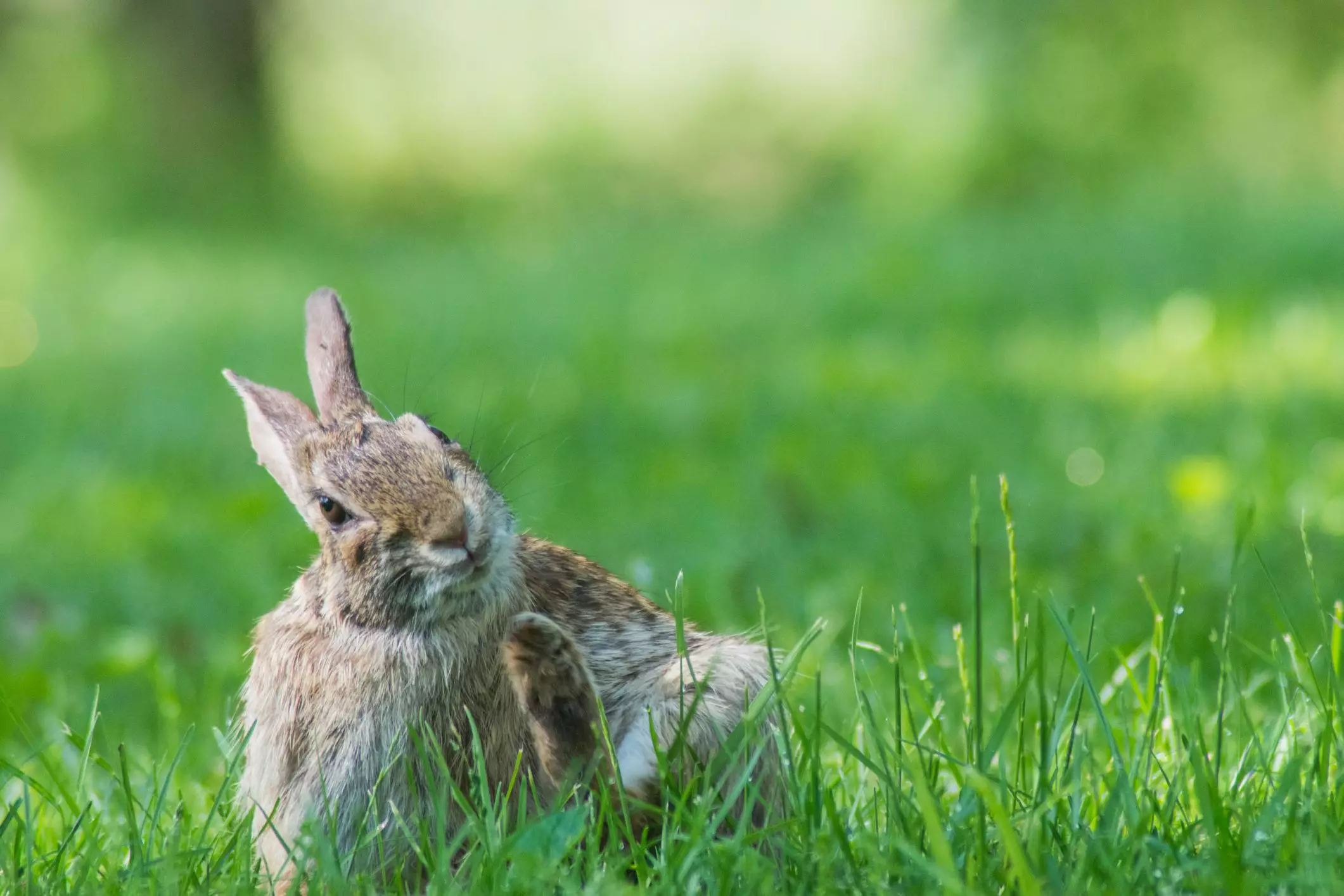Rabbits, like all pets, can experience discomfort and health issues that manifest through itching and scratching. As responsible pet owners, it’s vital to recognize the signs of an irritating condition affecting our furry friends. When a rabbit displays constant scratching behavior, it signifies an underlying problem that requires urgent attention. The medical term for excessive itching is pruritus, which can stem from various sources ranging from parasites to allergies. Understanding these causes and implementing an effective treatment strategy is crucial for ensuring the well-being of your pet rabbit.
One of the primary culprits behind a rabbit’s itchiness is parasitic infestation. Microscopic creatures, such as Cheyletiella parasitivorax, commonly known as fur mites, can severely affect rabbits. These blood-sucking mites attach themselves to the rabbit’s fur, causing irritation and leading to frequent scratching. Often dubbed “walking dandruff,” fur mites can proliferate quickly, affecting not just the rabbit but also spreading to other pets in the household and contaminating the living environment. Even indoor rabbits are not safe as these parasites can hitchhike on food or bedding brought from outside.
In addition to fur mites, rabbits can suffer from lice and fleas, which are also blood-feeding ectoparasites. Unlike fur mites, lice are species-specific, meaning they do not affect humans or other pets. However, fleas can infest rabbits just as they do dogs and cats, leading to excessive itching. Female fleas are particularly problematic, laying numerous eggs daily and potentially creating a larger infestation before the owner even notices the problem. A visual inspection using a flea comb can help identify fleas and the flea dirt they leave behind.
Itching isn’t always linked to parasites. Environmental conditions play a significant role in the health of your rabbit’s skin. Low humidity levels, dusty living spaces, and an improper diet can lead to dryness, which induces itching. Furthermore, the over-bathing of rabbits or the use of inappropriate grooming products may irritate their sensitive skin, leading to itching. Identifying and rectifying the source of dry skin can greatly enhance your rabbit’s comfort. Consulting with a veterinarian about suitable topical treatments can offer immediate relief while tackling the underlying cause.
Additionally, rabbits can encounter various allergens in their environment. Just like humans, rabbits often develop allergies to specific substances, primarily environmental ones. Common allergens in a rabbit’s surroundings may include dust from bedding, pollen in spring, or chemicals found in laundry detergents and cleaning supplies. A new cleaning agent or a recently introduced item may lead to skin irritation, resulting in intense scratching. Adjusting your cleaning habits and providing a hypoallergenic environment can significantly improve your rabbit’s quality of life.
Rabbits are also susceptible to fungal infections such as ringworm, which not only causes itching but can also lead to noticeable hair loss and red lesions. Ringworm is contagious and can be transmitted to other animals and even humans. The best defense is to keep new rabbits quarantined until their health status is confirmed. Alongside fungal threats, skin infections may arise from prolonged exposure to urine or feces. Such conditions necessitate veterinarian attention, as they can escalate into serious complications if untreated.
When it comes to addressing itching and scratching in rabbits, a multifaceted approach is often required. Identifying the source of irritation is key to effective treatment. For instance, if parasites are to blame, appropriate medications like Selamectin can be prescribed by a veterinarian to eliminate the infestation. Conversely, allergies may necessitate environmental adjustments or the use of specialty cleaning products.
Keeping a clean living space for your rabbit is a proactive measure that can significantly lower the incidence of itching and infections. Regularly changing bedding, ensuring a dust-free area, and maintaining a humidity balance are essential practices. Moreover, routine health checks can help identify potential issues before they escalate. Monitoring your rabbit for any changes in behavior, coat condition, or scratching habits is crucial.
Introducing a healthy diet and maintaining good hygiene during grooming can also assist in preventing many skin-related issues. Always utilize grooming products specifically designed for rabbits, as human or dog products can lead to unnecessary irritation. If you discover that your rabbit is scratching excessively, seeking veterinary advice promptly is the best route to ensuring a healthy, happy pet.
When your beloved pet rabbit exhibits signs of itching, it’s imperative to diagnose the root cause promptly and employ a strategic approach for treatment and prevention. By maintaining a clean environment and providing careful attention to their health, you’ll help ensure your rabbit lives a comfortable, itch-free life.

